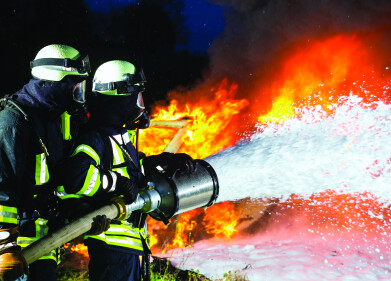Health & Safety
Asphalt Production and Benzene Exposure: Protecting Staff with a Safety-First Approach and PID Technology
Mar 08 2022
Benzene is ever-present in the production of asphalt, and as a classified carcinogenic, managing exposure and minimising risk is critical for worker safety. ION Science, as a leading global OEM for gas instrumentation, has developed the only fixed detector on the market to specifically detect benzene, reducing the risk of exposure to workers, the public, and the environment.
Asphalt makes up a great deal of the built environment – roads, pavements, and buildings all use asphalt in some form when it comes to construction. As such a prominent building material, the production of asphalt (also known as bitumen) is a global business. Benzene is present throughout the manufacturing process of asphalt, as it is derived from crude oil, a product with naturally occurring benzene.
High numbers of personnel are involved in the manufacture and handling of asphalt all over the world, and protecting workers against benzene exposure risks is imperative for businesses. While some recommendations and laws exist, such as DEFRA Process Guidance Note 6/42 (13), which sets out annual extractive testing for bitumen related processing. OSHA does not currently have any legal requirements around asphalt fumes and preventative measures, beyond general respiratory and PPE safety. Laws exist around general emissions, VOCs, and carcinogens associated with asphalt production, however there is very little currently in place specific to benzene exposure.
With schemes such as the Road Improvement Scheme 2 (RIS2) in the UK, and Norway’s ambitious Route E39 coastal highway scheme (including an underwater floating tunnel), asphalt will continue to be a critical ingredient of developing infrastructure. Businesses are looking to get ahead of the law changes now by using a ‘safety first’ approach, and bringing in additional or updated benzene monitoring systems to factories and production sites.
Even at low levels, benzene exposure can result in headaches, dizziness, breathing difficulties, and eye, skin, and respiratory irritation. Long term exposure, even as little as five years, can result in more serious conditions, including blood disorders, cancers, and pregnancy risks. Regardless of whether there are legal requirements in place, businesses must protect their staff appropriately against benzene exposure.
ION Science, as a leading OEM in the manufacture and development of PID (photoionisation detection) technology, has developed the only fixed detector on the market, specifically for the detection of benzene. The Titan is a specific fixed gas detector designed only for the monitoring of benzene.
Digital Edition
IET 34.2 March 2024
April 2024
Gas Detection - Biogas batch fermentation system for laboratory use with automatic gas analysis in real time Water/Wastewater - Upcycling sensors for sustainable nature management - Prist...
View all digital editions
Events
Apr 22 2024 Hannover, Germany
Apr 22 2024 Marrakech, Morroco
Apr 23 2024 Kuala Lumpur, Malaysia
Apr 23 2024 Kintex, South Korea
Apr 23 2024 Edmonton, AB, Canada


















